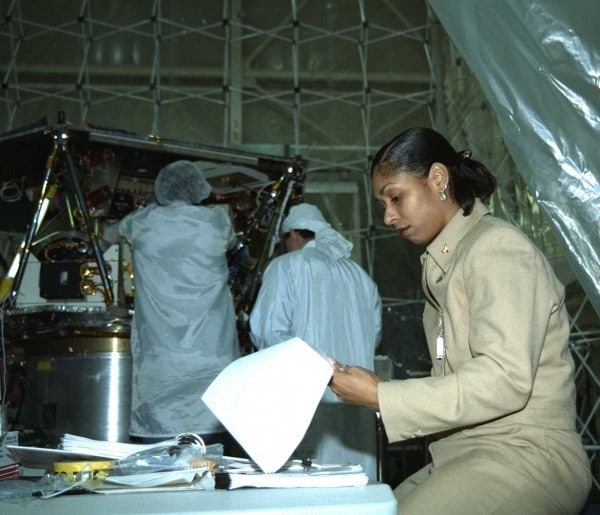Shaundra B. Daily
Assistant Professor, School of Computing at Clemson University
Shaundra B. Daily was born in 1979 in Nashville. In high school, an interest in being an agent for the FBI led her to major in electrical engineering at Florida State University. But, she writes, “once I got to college, I realized that while the FBI was fascinating, what I really enjoyed was working with kids using technology.” After graduating with honors, she received a master’s in electrical engineering and moved to Cambridge, Massachusetts, to attend the Massachusetts Institute of Technology. She graduated with a Ph.D. from MIT Media Laboratory, working in the Affective Computing Group. She is an assistant professor at the School of Computing at Clemson University.
April Savoy
Assistant Professor, Purdue University
April Savoy grew up in a small town in southwestern Louisiana, “where Creole was our first language and cooking our trademark.” She excelled in school, graduating from high school as valedictorian and then earning a perfect grade point average at Xavier University as a computer science major. “The elders of the family assured us, my cousins and I, that we would have endless opportunities to be whatever we wanted,” she writes. “I was constantly told that I could grow up to be a doctor or a computer professional. Funny, my current career path has me becoming both with a doctorate in Human Computer Interaction.” She earned her Ph.D. from Purdue University’s School of Industrial Engineering in 2007. She is an assistant professor at Purdue University. working to create a research program focused on Human-Centered Computing and Big Data in her Informatics Department.
Stephon Alexander
Assistant Professor of Physics, Haverford University
Stephon Alexander was born on the southern coast of Trinidad and Tobago and moved to the Bronx in New York when he was 8. His interest in physics started four years later when his father brought home a used computer. In his quest to learn how it worked, he “discovered the words ‘Quantum Mechanics.’” Quantum mechanics is now a part of Alexander’s daily life as a professor of physics at Haverford University. His research explores the interface between fundamental physics and cosmology, and, in particular, addresses questions about the early universe.





AWESOME
Awsome!
Out Standing
Sweet
im back in school and god willing hopefully oneday i can be up there. Thanks you for inspiring me
Overwhelming CRIDers congrats =D
me too! Geology major! You got this, Neb!